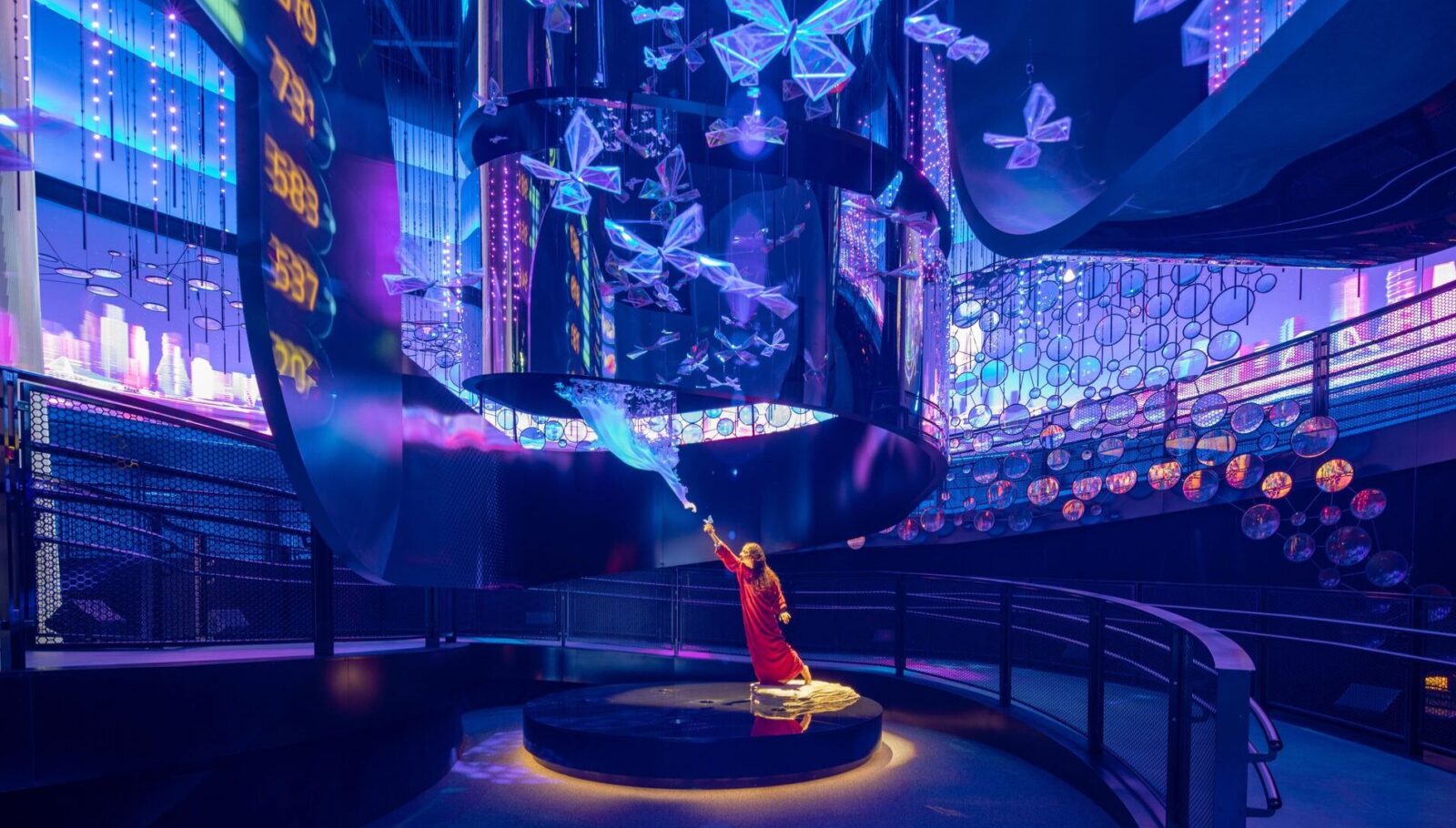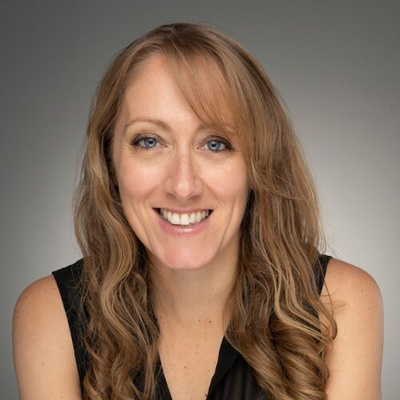Catherine Hartfield on Immersive Worlds and Creative Grit

For Catherine Hartfield, “impossible” is just the start of the brief. From almost joining Hi-5 as a performer to choreographing the group instead, building a company in China so 95 artists could enter the country, and now steering Immersive Experiences at Wētā Workshop, her career reads like a masterclass in saying yes before you feel ready—and figuring it out on the way.
In this conversation, Catherine Hartfield traces that nonlinear path from TV and theatre performer to executive leader inside one of the world’s most iconic creative studios. She talks about leaving a looks-driven industry, learning business by doing (and crying through parts of her thirties), and why she now hunts for people who bring theatre instincts and improv reflexes into immersive work. For her, the best project managers aren’t the most rigid—they’re the ones who can grab three wrong ingredients and still bake the right cake.
We also dive into the bigger questions facing live performance: how do you convince audiences to leave their screens? What does it take to build experiences in places like China and Saudi Arabia without treating them as a creative gold rush? And why does our industry struggle so much with confidence, especially in cultures shaped by tall poppy syndrome? Catherine shares stories from Wētā’s Gallipoli exhibition to metal guitarists in Riyadh, and makes a powerful case for artists as minds on par with scientists—quietly reshaping how we feel, remember, and connect.
This is just a preview of our conversation with Catherine Hartfield on the StageLync Podcast. The full episode drops next week—keep an eye (and an ear) out.
How did Catherine’s unconventional career path lead to her role as Head of Immersive at Wētā Workshop?
Catherine grew up in television and theatre as a performer, but very early on she realised she didn’t want a career based on looks, networking, and being endlessly judged on photos. A brutal casting comment about her being “a bit odd looking” flipped a switch: instead of chasing roles, she pivoted to making the work happen.
She nearly joined the children’s TV group Hi-5 as a performer, but when they couldn’t add a sixth member, she was offered the choreographer role instead. That opportunity opened a path into the business side: tour managing, artistic direction, choreography, merchandise, fan clubs, and people management all rolled together.
From there she ran a performing arts studio, moved to England to produce theatre, shifted into commercial roles at AEG Themestar, then became Business Operations Manager for Dragone in China—eventually setting up and running a company there. Later, a job ad for Wētā Workshop felt like a perfect match; she joined as studio manager, worked her way up to Executive Producer, and now leads the Immersive Experiences division. She credits saying “yes” to scary opportunities—and proving people wrong when they said she couldn’t do something—as the through-line of her career.
What were her biggest learning curves in business and leadership?
Catherine never had formal business training, so she relied on curiosity and research—right down to building a company in China with old-school paper documentation. The practical business side wasn’t the hardest part; she describes herself as a nerd who likes to learn. The real growing pains were personal and emotional, especially in her thirties.
In her twenties she didn’t know the boundaries and just did everything. In her thirties, especially at Dragone, she hit that messy stage of working out who to trust, how organisations really function, and what she wanted from life. There were tears, self-doubt, and a loss of the blind confidence she’d had earlier.
By her forties, she reached a calmer place where she cared less about people’s judgement and more about doing good work. Looking back, she believes the toughest part of “learning business” is actually navigating your own growth, confidence, and resilience, not spreadsheets and structures.
What is Wētā Workshop, and what does the Immersive Experiences team actually do?
Catherine is based in New Zealand, which she jokes is “the quietest place on the planet” after Beijing. Wētā Workshop is best known for its work on The Lord of the Rings, but today it’s a multi-division creative company. There’s a design studio that serves film, games, and immersive; manufacturing for film and immersive; a creative media team focused on China; tourism experiences in Wellington and Auckland (like Unleashed, which she calls founder Richard Taylor’s “brain exploding”); a long-running consumer products division (all those Gandalf figurines); and a game studio that recently released Tales of the Shire.
Catherine’s Immersive Experiences division takes on everything from museums and full-scale attractions to pop-ups and art installations. Recent and current projects include major museums and a very high-profile building in Dubai, as well as ongoing work across the Middle East and China. Her role is to spot emerging markets, uphold Wētā’s standard of excellence, and help diversify beyond film at a time when AI is reshaping that industry.
How does she build teams for immersive projects—and why does she love theatre people and improv backgrounds?
When assigning creatives, Catherine doesn’t just look at skills; she matches personalities and energy to each client. Some clients are intense and detail-focused, wanting to examine every decision; others are entrepreneurial and just want to go along for the ride. She thinks carefully about who will thrive with which temperament.
In project management, she sees three main pipelines into immersive: film, construction, and theatre. After years of trial and error, her conclusion is clear: theatre people are often the best fit. Construction and film cultures can be very process-driven with rigid roles, while immersive work, like theatre, demands constant crossover, improvisation, and creative problem-solving—grabbing resources, shifting approaches, and “making it work” when budgets or timelines say no.
She’s particularly interested in up-and-coming talent, especially women in a space that’s still male dominated, and she values people who can adapt. Anyone with improv experience gets her attention: if you can say “yes, and…” when things change at the last minute, you’ll probably survive immersive experiences.
How does she see the future of immersive experiences, and what does she look for in emerging talent?
One of Catherine’s biggest concerns is how to lure audiences away from their phones when they can watch walk-throughs of experiences online. She believes theatre and immersive work are the antidote to that boredom—spaces where people can feel something so deeply it stays with them for days. She points to Wētā’s Gallipoli: The Scale of Our War at Te Papa: hyper-real giant figures and intimate diary stories that have visitors openly crying. For her, that lingering emotional impact is the measure of success.
She’s excited by emerging markets like Saudi Arabia, where people who’ve been “underground” culturally are now bursting to create and share work—from secret metal guitarists to film lovers finally going public. At the same time, she’s wary of Western companies treating new markets like a quick feast, damaging credibility before the ecosystem matures.
If she could change one thing in the industry, it would be the chronic lack of confidence. Artists undersell themselves, especially in cultures shaped by tall poppy syndrome. She believes creative minds are on par with scientists probing quantum physics in what they contribute to humanity.
When hiring, she doesn’t care if someone has a fancy degree. She looks for passion, wide-eyed curiosity, and a willingness to fail and try again—whether you’re a truck driver with a big idea or the farmer’s kid who suggested turning Hobbiton into an attraction. The qualities that get you into her orbit: resilience, genuine enthusiasm, and that unstoppable “yes, and” energy.
Featured Image: Courtesy of www.wetaworkshop.com
Editor's Note: At StageLync, an international platform for the performing arts, we celebrate the diversity of our writers' backgrounds. We recognize and support their choice to use either American or British English in their articles, respecting their individual preferences and origins. This policy allows us to embrace a wide range of linguistic expressions, enriching our content and reflecting the global nature of our community.
🎧 Join us on the StageLync Podcast for inspiring stories from the world of performing arts! Tune in to hear from the creative minds who bring magic to life, both onstage and behind the scenes. 🎙️ 👉 Listen now!
